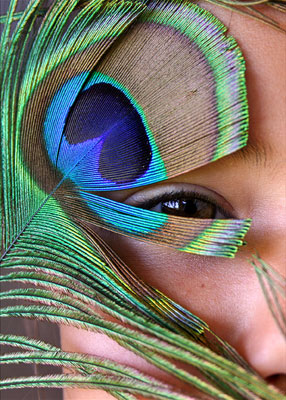All Nonfiction
- Bullying
- Books
- Academic
- Author Interviews
- Celebrity interviews
- College Articles
- College Essays
- Educator of the Year
- Heroes
- Interviews
- Memoir
- Personal Experience
- Sports
- Travel & Culture
All Opinions
- Bullying
- Current Events / Politics
- Discrimination
- Drugs / Alcohol / Smoking
- Entertainment / Celebrities
- Environment
- Love / Relationships
- Movies / Music / TV
- Pop Culture / Trends
- School / College
- Social Issues / Civics
- Spirituality / Religion
- Sports / Hobbies
All Hot Topics
- Bullying
- Community Service
- Environment
- Health
- Letters to the Editor
- Pride & Prejudice
- What Matters
- Back
Summer Guide
- Program Links
- Program Reviews
- Back
College Guide
- College Links
- College Reviews
- College Essays
- College Articles
- Back
The Potential of Cloning is Positive, Despite How It’s Portrayed in Media
A few years ago, one day my previous social studies teacher showed our class a movie named ‘The Island’. In the movie, the thousands of human clones were illegally utilized as an insurance policy for rich people. It absolutely put all of us into a chaos. However, after a few moments, the extraordinary questions led me to another curiosity. What if we are ignoring the potential positives of cloning? Based on the proven facts, I firmly believe that with some restricts, this technology would not only save millions of the victims of incurable diseases but also will open the threshold of the potential medical improvement.
As I research about the embryonic cloning, I could not overlook one undeniable fact that the typical, attractive images of human cloning in media has hugely impacted on the concept of it. Seeing the countless clones dominating the world, the cloning technology might sound simply dangerous. However, embryonic cloning is defined as the process of generating a genetically identical copy of a cell or particular tissue (Rugnetta), not copying and pasting the whole body through the 3D printer. In the Bioethics Council Conference which was held in 2002, more than half of the scientists took a side of approving biomedical cloning (Gazzaniga). The researchers in the past had already succeeded in cloning a mammal, creating Dolly the Sheep in 1996, which is considered as a remarkable scientific achievement (“Cloning Dolly the”). After the human embryonic stem cell was successfully cloned in 2013, a year later, the cell could be implanted for a Japanese woman who had been suffering from age-related eyes degeneration (“How Close Are”). Hence, despite the suggested risks, according to this data, it has absolutely been controlled such as any other technologies in our modern world.
Grievously, the value of saving the ocean of patients or the victims of incurable diseases is being ignored because of the exaggerated problems in science fictions or movies, which are made only for entertaining thrills. Mrs. Barnes has been suffering from incurable heart disease. She said, “It scares me, as obviously I want to be around to see my children grow up.”(McKie). And her daughter’s world has collapsed. “It turns your world down. I worry about my mom day and night, 24/7…” (McKie). Mrs. Barnes and her daughter gave voices in The Guardian’s interview. But the prospects for patients like Barnes last week took a dramatic turn for the better when it was revealed that human cloning has been used for the first time to create embryonic stem cells from which new tissue – genetically identical to a patient's own cells – could be grown (McKie).
Maybe it would be a hard pill to swallow for some to accept the artificial, man-made cells. However, truth be told, “Cloning has existed in nature since the dawn of life. From asexual bacteria to ‘virgin births’ in aphids, clones are all around us and are fundamentally no different to other organisms” (“Cloning Dolly the”). People often feel uncomfortable with experiencing and approaching something ‘new’, such as artificially cloning cells. However, I believe that it can not be an acceptable reason to take a step back on the way to the better future and engaging with knowledge. To illustrate, “The modern science has not had a solid answer to the capacity of the brain. People could learn it by only monitors since we do not have a technology to grow a new brain cell. However, human cloning would make it possible. Thus, it would reveal the ocean of mysteries of human's brain” (LeMind).
Assuming that the international organizations have noticed the essential of maintaining medical improvement, United Nations, UN declared allowing therapeutic cloning after a three-year of serious debate (Mayor).
Believe it or not, 17.7 million people are annually dying because of the cardiovascular diseases (“Cardiovascular diseases CVDs”). Approximately 3 people are dying in every minute, even when you are studying in school, hanging out with friends, or having a sweet time with family. I imagine the new embryonic cell could save 17.7 million people every year. I imagine Mrs. Barnes recovering from dreadful illness, also taking her sweet daughter’s angel smile back to the family. The scientific effect of cloning is utterly misunderstood due to the movies and books which target audience to be thrilled. For example, a cloned human trying to take over a life of the real person. However, it is nothing more than one of the greatest medical solutions creating hardy tissues for medical purpose. Furthermore, it is a potent inspiration to open mysterious knowledge of our genes and brains. Though some people are saying that they are afraid of risks which could be caused by cloning, still the facts that 17.7 million deaths could be saved, or countless of scientific discoveries might have been found before are terrifying us.
Though some people are afraid of risks which could be caused by cloning, accepting 17.7 deaths is obviously not a smooth sailing.

Similar Articles
JOIN THE DISCUSSION
This article has 0 comments.
